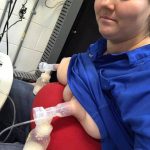By Erin
I have five children. I have breastfed for a total of 10.5 years (and counting!). I am a LLL leader and former doula. I am also a Chicago Police Officer. My two youngest children were born after I made the switch from birthwork to police work. While the fields are very different in almost every way, they have a commonality of bearing witness to people in times of great intimacy and I (usually) feel proud to have held both of these titles.
As a doula, it was never necessary for me to advocate for myself and my right to pump milk for my children. I had a feeling this might be a different story within the Chicago Police Department, a paramilitary organization. As the day neared when I would return to work following the birth of my first “police baby”, I felt unsure of what to expect when approaching my supervisors at CPD. However, because of federal laws which require employers to accommodate lactating employees (Illinois has laws that offer additional protections, too) and because, as a law enforcement agency I figured it would only make sense that laws would be upheld “in house”, I felt hopeful that I would be able to pump for my baby without much issue.
I was wrong.
Pumping at work has been an uphill battle. I have pumped in co-ed bathroom/locker rooms next to urinals (and all of the smells that come with them). I have pumped in female only locker rooms next to dirty “work boots” (the boots that officers leave at work to avoid contaminating their home) while in plain view of my female co-workers. I have pumped in filthy storage rooms full of garbage and discarded office supplies and have had to dispose of milk that was polluted by debris falling from the ceiling. I have balanced my pump on the edge of a dirty sink in a room full of “damp rid” bags, unsuccessful in their attempt to eliminate the heavy moisture and resulting mold in the air. I have developed mastitis due to the lack of pumping breaks or interruptions during the breaks, exacerbated by wearing a ballistic vest which acts as a compression garment to engorged breasts. I have had to tirelessly advocate for myself and decline suggestions from supervisors to “pump in the back seat [of the squad car]” among other unsuitable locations. I have been embarrassed both accidentally by well-meaning supervisors attempting to help and intentionally by those who seem to think that a pumping break is some kind of workplace perk (these people have clearly not spent a lot of time hooked up to a breast pump!).

On one occasion, a male supervisor “forgot” that I would need to take a break to pump despite being reminded twice. My pumping time came and went (anyone who has missed a feed or pumping session knows that this means physical discomfort). He then intentionally put me in a position to announce that I would need to pump in front of a group of other officers, and when I played along and did so, he pretended not to hear me.

The next day I was the only one from that group moved to a different van. The female sergeant in the new group limited me to two pumping breaks 3.5 hours apart during a twelve hour tour of duty, despite my requesting two breaks spaced 5 hours apart.
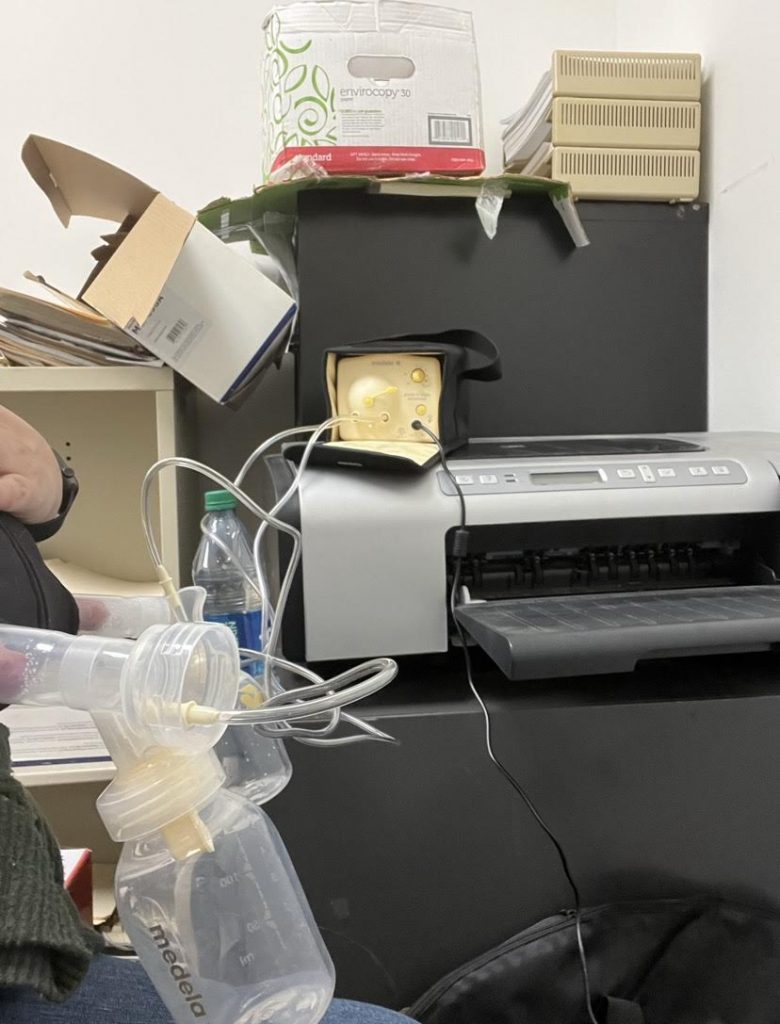
When the male supervisor, let’s call him “Sgt Hot Dog”, from the above scenario was questioned about his behavior he denied any ill intent and claimed that the only reason my break was delayed was due to the chaos of the “riots”. On that particular day we spent 12 hours in a passenger van alternating watching videos on our phones with naps. It is true that we were on standby in case violence erupted, but at that point the protesting and looting had largely ended. On the same date, our caravan, led by Sgt. Hot Dog drove approximately 9.2 miles to have lunch at Portillos (a restaurant known for their hot dogs, hence the name). But we did not have time to go to the station so that I could pump when needed. Obviously.
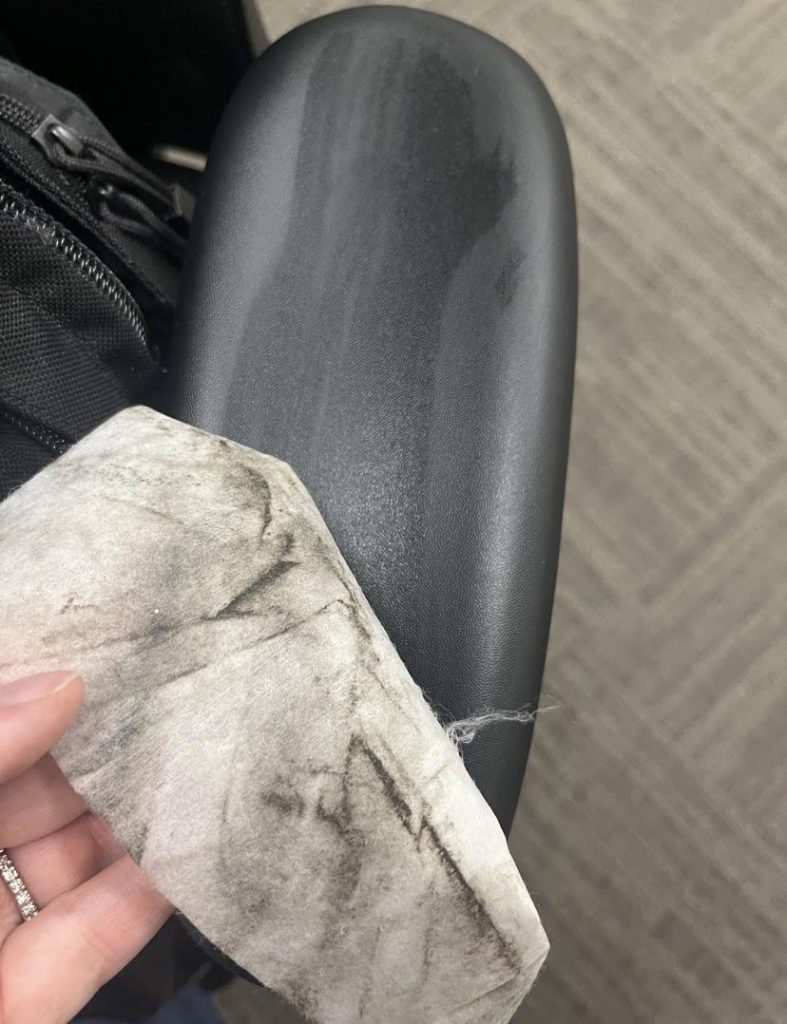
The worst part of the above story is that Sgt Hot Dog is actually one of the few co-workers who, at least, verified the events occurred (without admitting guilt of course). When questioned, nearly all of the other officers and supervisors who participated or witnessed instances of discrimination claimed that they could not recall that it occurred (let’s call them, collectively, “Officer Can’t Recall”).
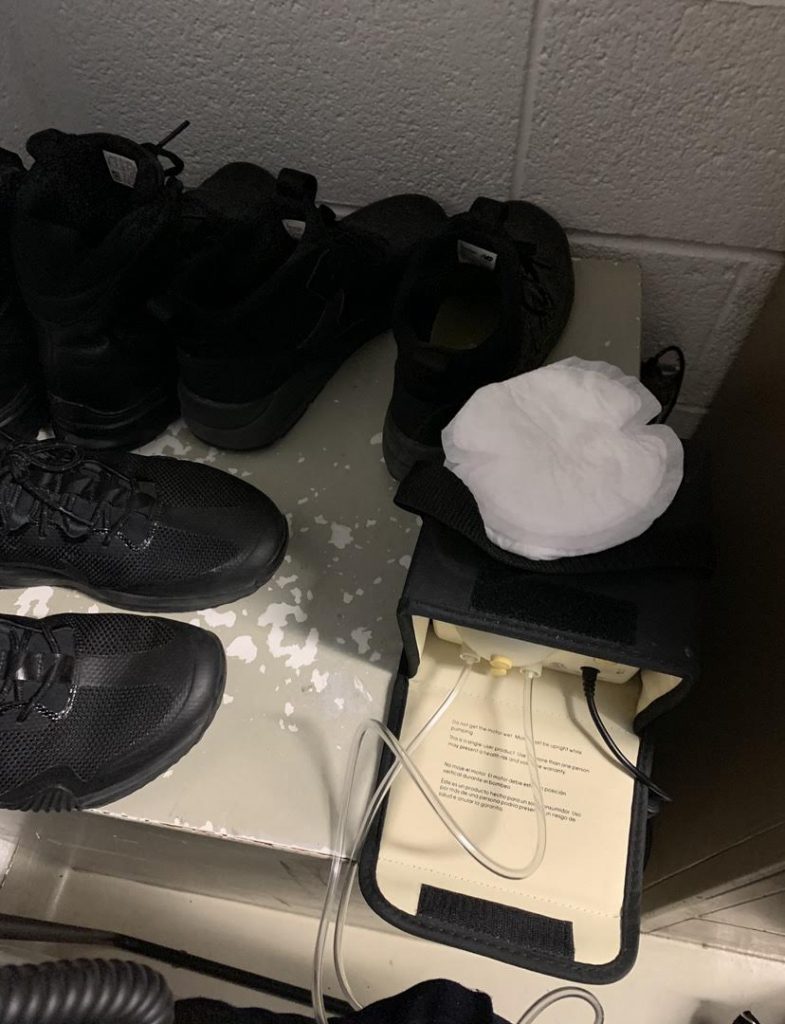
I have learned a lot about the mindset of Officer Can’t Recall. The “brotherhood” which exists within CPD is not like the “sisterhood” of birth workers, as it is discretionary. The officers who would be first to back me up during a person-with-a-gun call have been the first to deny any wrongdoing by the department in failing to provide space and time for pumping, even if they watched it happen.
I guess we only bleed blue sometimes.
Needless to say, it has made pumping an incredibly stressful experience.
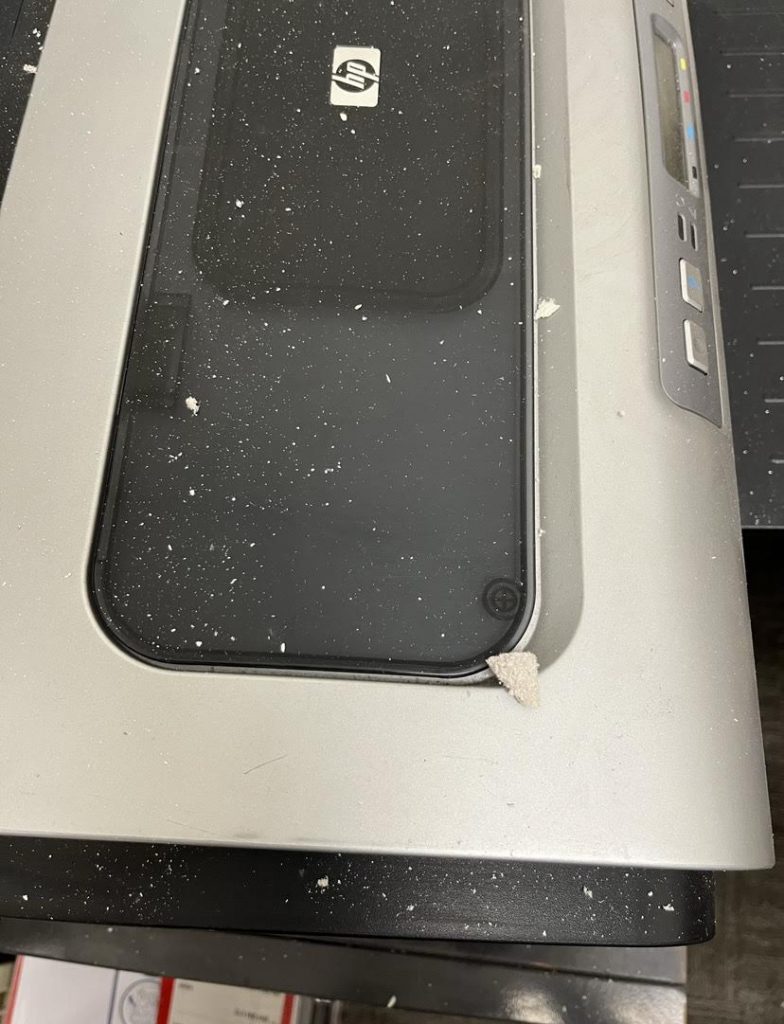
There have been positive parts of this ordeal as well. I am grateful that my husband is a great listener and supports my choice to breastfeed. As a 25 year veteran of the department, and supervisor, he has been taken aback by the unfolding saga. Unfortunately, my experience is not unique and I am not the first department member to encounter these obstacles. I have connected with a group of other female police officers who are currently pumping, or who have in the past. Together we share stories of success and heartbreak. And it truly is heartbreak for a parent to have to stop breastfeeding due to a lack of safe, sanitary, and private spaces to pump. Additionally, I received assistance from the ACLU in filing a couple of Illinois Dept of Human Rights charges. The attorneys at the ACLU are unrivaled. At a time when I was feeling extremely defeated, it was a game-changer to hear someone validate that what was happening was wrong, and at times, against the law.

I am now breastfeeding (and pumping for) my second “police baby”, and so the battle continues, with small victories along the way. CPD has updated its department policy on lactation accommodations. The new policy supports lactating department members more effectively, but from my perspective it has been a struggle to enforce.
Through this experience I have reflected on how lucky I was in my previous profession to work in a space where supporting lactating parents went without saying. My hope is that this will become the norm in all workplaces. I feel a deep sense of appreciation that I came into this experience with the background and knowledge that I have. I know that if I had walked into work as a first time mom without a decade of breastfeeding experience, I would never have been able to endure the embarrassment of all of this. But after all these years of talking about my breasts, your breasts, all of our collective breasts as they relate to feeding our babies….it really went without saying that I would continue to look at every officer, sergeant, lieutenant, captain, and commander and respectfully insist that I be able to pump milk for my babies in a sanitary location. Plus, any embarrassment that results from these conversations usually dissipates quickly, after all they won’t even recall the events.

